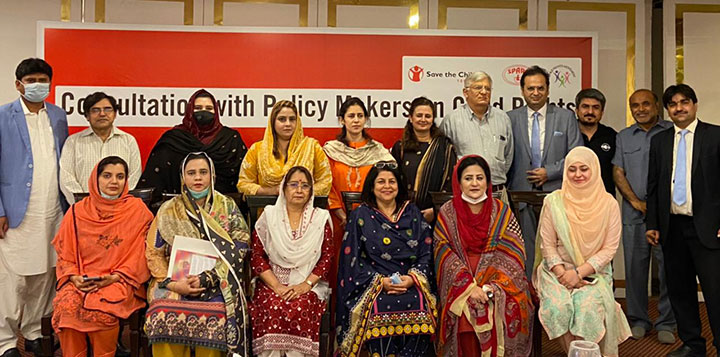By: Our Correspondent
ISLAMABAD (TD): Parliamentarians urged collective efforts to give children their due rights. They were discussing child rights issues at a consultation organized by Society for the Protection of the Rights of the Child (SPARC).
Lal Chand Malhi, Federal Parliamentary Secretary, Ministry of Human Rights talked about government initiatives towards child rights with limited resources. He mentioned that The Zainab Alert, Response and Recovery Bill, 2020, and Ehsaas Undergraduate Scholarship Program as some key steps taken by the government to safeguard the rights of Pakistani children. He also mentioned that the government is also keeping the damage caused by the COVID-19 pandemic in consideration.
He further added at legislative level, government supports private bills and bills tabled by opposition party members. On forced conversion issue in Sindh, he stated that report has been prepared after conducting at least 9 high level meeting at provincial level and report’s findings are submitted to HRCP. He also added that Child Rights labour survey to be completed this year.
Dr. Nausheen Hamid, Parliamentary Secretary, Federal Ministry National Health Services Regulations and Coordination said that Pakistan has approximately 47% of Pakistan’s total population comprised of children under the age of 18, which is half of the total population. She mentioned that the government is very much aware of the issues, the government is primally focusing on child health. Measures are taken to provide quality health for children. A healthy mind resides in a healthy body she said.
Riaz Fatyana, Chairman National Assembly Standing Committee on Law and Justice said that the government has taken certain initiatives in law and Justice, he mentioned the Juvenile justice bill. He also mentioned the gradual behavioural shift towards child labour in society and the paradigm shift towards child protection.
Mehnaz Akbar Aziz, Member, National Assembly, Pakistan hassled that policy makers will have to set aside their differences and work together to protect the future of Pakistan which is possible only through the provision of child rights. She mentioned policymakers need to ensure that overall spending on child rights especially the percentage of developmental budgets in education, child health and nutrition, and child protection are increased. She further said that a joined committee of Civil Society and policymakers should be made to work together for provisions of child rights
Shamim Mumtaz, Chairperson Child Protection Authority, Sindh stated that despite providing DNA evidence and confession, the perpetrators are set free due to mutual agreement between victim’s and perpetrator’s families. There are numerous other ways where victims of child abuse are deprived of justice. ‘A state within a state’ has emerged which does not discuss ‘ under the carpet cases’ involving child abuse. Moreover, financial constraints to National Commission on the Rights of the Child (NCRC) are hampering valuable and critical service delivery to the vulnerable children. Late release of finances hamper the efforts of organization in resolving immediate issues/crisis gave by children.
She purposed that these specific gaps need to be filled and 18th amendment should not be used as an excuse to hamper legislative and institutional work. “Child Rights cannot be devolved” and all stakeholders need to ensure combined efforts in this regard.
At the end, SPARC conducted interactive session where parliamentarians from provincial and federal legislatures addressed questions from the audience. During discussion, it was pointed out that administrative procedures can also pave the way for resolving child rights issues. For instance, marriage registration should be transferred to NADRA, thus, providing comprehensive check on issue of child marriages. Moreover, the conversion cases should be heard by court when a person reached legal age of adulthood.

